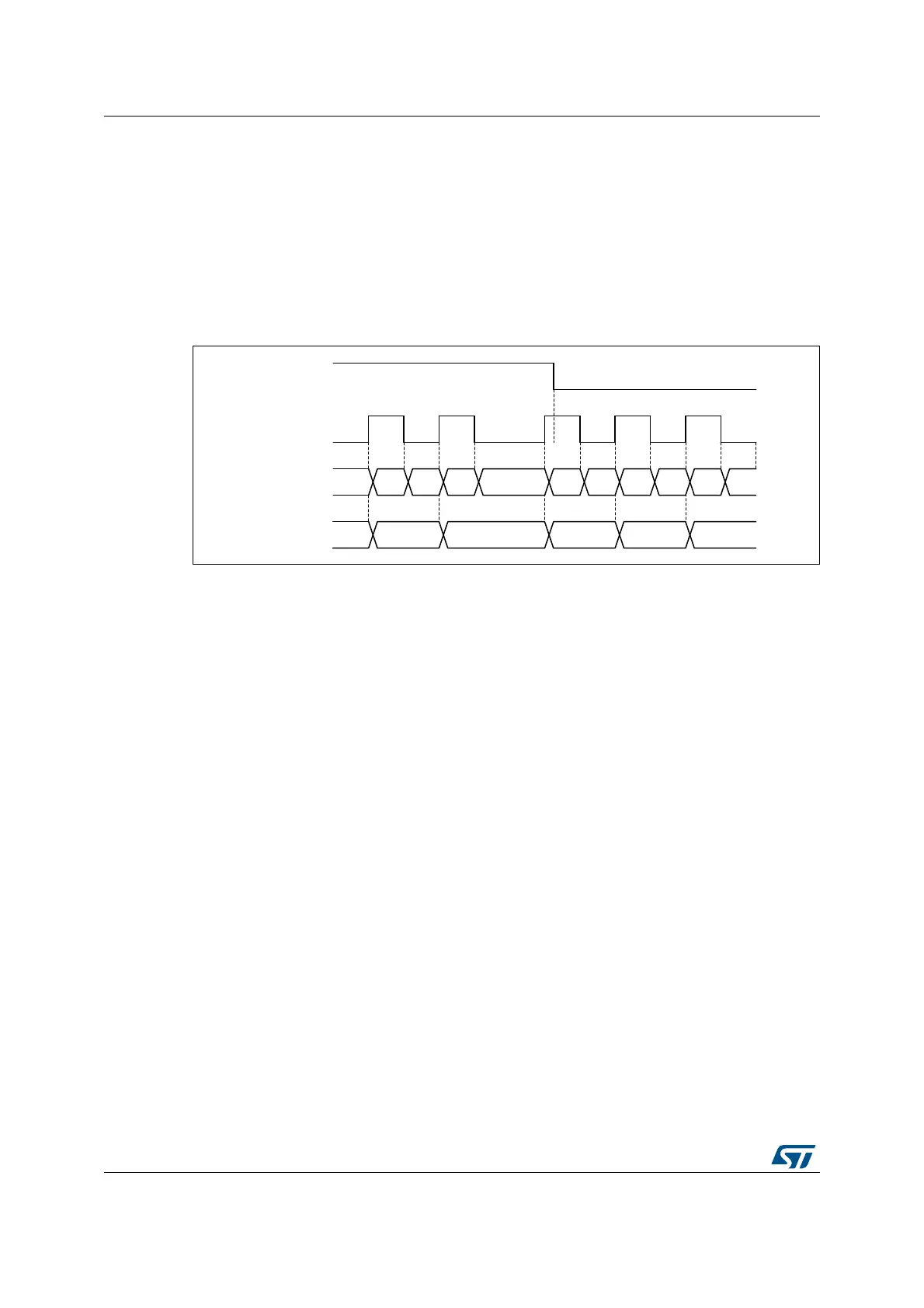General-purpose timers (TIM2/TIM3/TIM4/TIM5) RM0440
1278/2126 RM0440 Rev 4
This mode is enabled with the SMS[3:0] bitfield in the TIMx_SMCR register, as following:
• 1010: x2 mode, the counter is updated on both rising and falling edges of the clock
• 1011: x1 mode, the counter is updated on a single clock edge, as per CC2P bit value:
CC2P = 0 corresponds to rising edge sensitivity and CC2P = 1 corresponds to falling
edge sensitivity
The polarity of the direction signal on tim_ti1 is set with the CC1P bit: 0 corresponds to
positive polarity (up-counting when tim_ti1 is high and down-counting when tim_ti1 is low)
and CC1P = 1 corresponds to negative polarity (up-counting when tim_ti1 is low).
Figure 408. Direction plus clock encoder mode
Directional Clock encoder mode
In the “directional clock” mode on Figure 409, the clocks are provided on two lines, with a
single one at once, depending on the direction, so as to have one up-counting clock line and
one down-counting clock line.
This mode is enabled with the SMS[3:0] bitfield in the TIMx_SMCR register, as following:
• 1100: x2 mode, the counter is updated on both rising and falling edges of any of the two
clock line. The CC1P and CC2P bits are coding for the clock idle state. CCxP = 0
corresponds to high-level idle state (refer to Figure 409 below) and CCxP = 1
corresponds to low-level idle state (refer to Figure 410 below).
• 1101: x1 mode, the counter is updated on a single clock edge, as per CC1P and CC2P
bit value. CCxP = 0 corresponds to falling edge sensitivity and high-level idle state
(refer to Figure 409 below), CCxP = 1 corresponds to rising edge sensitivity and low-
level idle state (refer to Figure 410 below).
MSv62352V1
tim_ti1
Counter x2 mode
tim_ti2
Counter x1 mode
7 9 8
7
6 8
68 9 10 11 10 9 8 776
